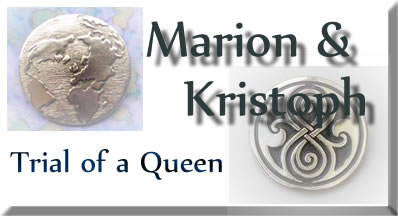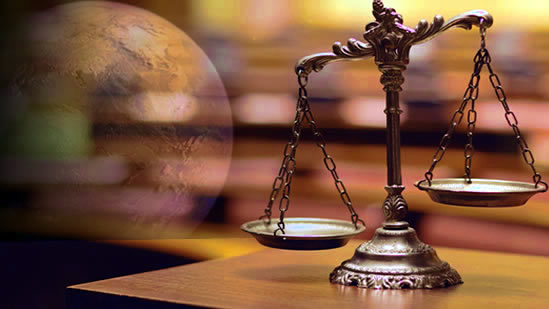

Only two days after the grand ball, the same room where the banquet had been held was turned into a courtroom. The King himself was the chief judge with two of his senior government ministers sitting with him in case his mind was conflicted in any way.
The chairs set in rows for the witnesses and victims were crowded. The area set aside for ordinary members of the public to view this trial were full. The press gallery was strictly by appointment, but included many representatives of worlds beyond the Lukasan system.
The only part of the room where anyone sat alone was reserved for the defendant.
Doctor Pederson, the human obstetrician brought to Lukas by Kristoph de Lœngbærrow was one of the first expert witnesses after the King’s own doctors. His credentials as a physician working on the impartial SS Marie Curie wherever in the galaxy medical help was needed commanded respect not only from the King, but all within hearing. In answer to the Prosecuting lawyer’s questions he confirmed in the strong, clear voice of long experience that both Marion de Lœngbærrow and Oriana de Lœngbærrow were victims of a dangerous chemical substance that brought on premature labour. He confirmed that Marion’s baby died with the substance in his blood.
The King thanked him for his testimony and his good work in this trying time and confirmed that he and his medical team were free to leave Lukas having done their duty to the full.
The King’s coroner was brought back to the witness stand to confirm that the Second queen had suffered from the same chemical interference in her pregnancy and that the stillborn prince had the very same poison in his blood.
After these qualified medical experts, Aineytta de Lœngbærrow took the stand, swearing an oath to the Lukasan court. She gave an account of her expertise as a homeopathic medical practitioner, having learnt her skills by lifelong experience rather then formal qualifications. She was accepted by the court as an expert witness. In that capacity she was asked to describe what happened not only during the dark and distressing day, but later on when the sun was up but no warmth had been felt within the grief-stricken Palace walls.
“My son brought me to the palace kitchen,” she said. “He wanted me to examine a number of edible plants used in the preparation of the banquet.”
There had been an air of trepidation amongst the kitchen staff as the elegant extra-terrestrial woman walked along the counter where the ingredients had been laid out. She touched and smelt, even tasted, some of the herbs and flower heads.
She stopped and carefully examined two particular samples of a flower with bright, waxy yellow petals. Part of an elaborate dessert they had flavoured and decorated was also reserved as evidence.
“This plant is called what on this world?” she asked the young chef who had been responsible for the confection.
“Madame….” He began, dry mouthed and sick at heart. “It is called ‘Sweet Buttersun Flower, for the flavour and colour, and the belief that both come from trapping the light of the yellow sun in its petals. It… gives a sweet taste to many dessert dishes.”
“A harmless and edible plant,” Aineytta confirmed. Then she picked up another flower, similar in its arrangement of petals, but wilting into a brown, shrivelled form that gave off a bitter smell. “And this?”
“Madame, that LOOKS like Sweet Buttersun,” the chef said. “When it was fresh it may have been indistinguishable. But Buttersun keeps its fragrance for many days. That… I don’t know what it is, except that it is not Buttersun.”
“No, it isn’t,” Aineytta agreed. “This is a terribly poisonous plant. But it was here in the kitchen amongst the wholesome ingredients.”
“I do not know how that came to be,” the chef assured her. “I, myself, selected the best herbs from the kitchen garden.”
“Some might say that is an admission of guilt, young man,” Aineytta told him. The chef quailed. “No, I believe you. Have no fear. Somebody else tainted the dessert ingredients with this insidious lookalike plant.” She glanced around at the kitchen staff. “Does anyone know where this imposter grows?”
There was a worried silence before one boy employed to wash dishes stepped forward.
“Madam….” He said. “I know where it can be found. But only because I work in the gardens in my spare time. I… I like flowers. I’d like to be a gardener when I finish my schooling, not a kitchen worker. I spend my time in the gardens. But I didn’t… I would never….”
“Of course you wouldn’t,” Aineytta said gently. She could read the innocence of the boy easily enough. “But show me where this other shrub grows.”
A member of the palace guard and a Gallifreyan diplomatic guard both went to the garden with Aineytta and the frightened but courageous pot boy and would-be horticulturalist. He brought them beyond the kitchen garden with its wholesome food plants into a space enclosed by a high wall in which colourful ornamental varieties were laid out in formal beds. Aineytta carefully studied the waxy yellow flowers of one perennial bush and nodded grimly.
“Who normally has access to this garden?” she asked. The answer only slightly surprised her.
Wilting samples from the kitchen and fresh ones taken from the enclosed garden were preserved in stasis bags. A clerk of the court held them up for all to see.
“Yes, those are the flowers of a plant you call ‘false dew’,” she said. “It contains a toxic substance known in many places as Cymbidiuma. Extracting that substance from this or a dozen or so similar plants is illegal because of its use as an abortifacient – a use considered abhorrent by all sentient beings with respect for life. False Dew is all the more insidious because, when freshly picked it is indistinguishable from the sweet, lovely dessert ingredient you call Buttersun. The difference is only obvious after a few hours when it begins to wilt and the sweetness becomes bitter and repellent. Somebody could easily have used False Dew flowers to garnish the dessert eaten by all at your banquet. It would have had no effect on any man who ate it. The poison causes extreme contractions of the womb. It is likely that every woman who had been present suffered some small discomfort during the night, but those who were with child suffered far worse. To my knowledge, your Grace, that included your Queen, my daughter and daughter-in-law, and also three young guests and one servant who ate the dessert. Those four women were in the early stages of pregnancy and suffered the same terrible loss, though mercifully without so much physical pain.”
“By Lukasan law, that is six counts of infanticide,” the King said grimly. “It would have been seven but for medical intervention.” His councillors agreed, as did the whole court. None of the women affected were present. All were deemed too ill and too distressed to attend, but they were represented by bereaved husbands and relatives.
The defendant, more alone than ever in the light of such stark revelations, said nothing.
“Madam, thank you for your testimony,” the King told Aineytta after she made a few additional remarks. “And my condolences on your family’s grief.”
“To you, also, your Grace,” Aineytta answered before stepping down from the witness box and going to sit beside her son. The chef and the pot boy were called to confirm her findings as well as an eminent toxicologist who confirmed in scientific terms what Aineytta knew from practical herbology.
The defence had attempted to refute some of the evidence. Doctor Pederson was an alien brought to Lukas by an interested party and his testimony was therefore, suspect.
“Interested party?” The King repeated those words coldly. The defence lawyer wilted like False Dew in the shadow of his words. “You mean the father of a dead baby. Let nobody forget that. There is no man or woman on Lukas who is not an ‘interested party’ when the murder of innocents is concerned. I, myself, am an ‘interested party’ in that respect.”
The defence lawyer had intended to cite Aineytta de Lœngbærrow as another ‘interested party’, adding, furthermore, that she was an unqualified woman practicing what many would call ‘witchcraft’.
When the uproar died down, the King again intervened. He refused to allow Aineytta’s motives to be questioned any further and reminded the lawyer that the ‘witchcraft’ remark could be taken as slander. He repeated the court’s acceptance of Lady de Lœngbærrow as an expert in her field.
It wasn’t, in that respect, a ‘fair trial’. In many parts of the universe, witnesses, even honest, good women like Aineytta de Lœngbærrow, could be cross examined by defence lawyers. In many judicial systems a judge who was, himself, so closely affected by the crime as the King was, would be unthinkable.
But this was Lukas, an absolute monarchy. The King had decided a trial was necessary so that the people should see the truth, but he was not going to have the truth distorted by lawyers.
The defence team were left with very little else to do except plead extenuating circumstances. But the King was having very little of that, either. He allowed them ten minutes before stopping the appeal mid-sentence.
“Enough!” he snapped. “Let the defendant stand to face me.”
Dressed in a simple black dress that was a far cry from the finery she wore to the banquet, the defendant stepped forward flanked by two palace guards. She tried to look him in the eye but his gaze was so harsh she was forced to look down at the floor.
“You are guilty of the most heinous crime imaginable,” the King said in barely controlled tones. “You murdered my son, and the son of an honoured guest in my palace. You caused harm to five more women who had done nothing to you. All this out of jealousy.”
“I…” the defendant began, but her words died on her lips.
“You WERE my First Queen. You were honoured above all women. I loved you above all others. But you betrayed that love. You betrayed me. You betrayed your sister Queens. You stained the honour of our world. Out of JEALOUSY.”
The disgraced woman said nothing. Around the court and watching on broadcast media, Lukasan citizens all wondered how such a thing could have happened. How had a Queen committed such a terrible crime against her sister Queen? How was a woman they had honoured disgraced herself so terribly?
“My Second Queen, whom you wronged so terribly, has prevailed upon me to show mercy,” the King continued. “For her sake I will do so. You will not be executed for your crime.”
There was a murmur around the room. It might have been one of relief. The death penalty was a terrible thing.
There might, for that matter, also have been some disquiet about her being spared the consequences of her crime. Many believed she deserved the ultimate punishment.
“You are cast aside. I do not even wish to look at you. You are no longer my wife or my Queen. You are no longer a citizen of Lukas. You have no status of any kind. You will be taken from here to the Retreat of the Sisterhood of the Veil. There you will work as a servant to the Sisters. You will not be one of their gentle and revered Order, merely under their supervision. You will eat and sleep separate from them. You are not worthy of their good company even at the table. You will wash their clothes, clean the floors of the Retreat, whatever labour they require, except the preparation of food. You will not be spoken to except to receive your daily instructions. You will not speak to the sisters unless spoken to first. You will have no visitors, no messages, no comforts from the outside world. The outside world will forget you.”
It was mercy, but in the King’s barely contained anger it almost didn’t sound like it. The former queen was pale and shame-faced as her fate was told to her. She had no appeal. The guards led her away.
“That is all. This company is dismissed,” the King said when she was gone. He turned and left the room. Slowly everyone else disbanded.
Kristoph and his mother looked at each other as they made their way back to the Diplomatic quarter.
“He WAS merciful,” Aineytta confirmed. “I am glad, in a way. Another death would not have healed his or our grief.”
Kristoph agreed, though he was still wondering if he could have been so merciful himself in such a circumstance. He wasn’t quite sure.
“I must do my duty and take Doctor Pederson and his team back to their ship before they are missed,” he said, considering practical matters instead of emotional ones. “Then I must formally take my leave of the King. After that we may all go home. As soon as possible, Oriana’s child must be formally named under the Gallifreyan sun. He will be accepted as a son of our House. I promised that to her. It will be done. Then… we will all try to make a new beginning after this dark time.”
“Yes,” Aineytta agreed, though she doubted it could be done so easily.

 |
 |
 |